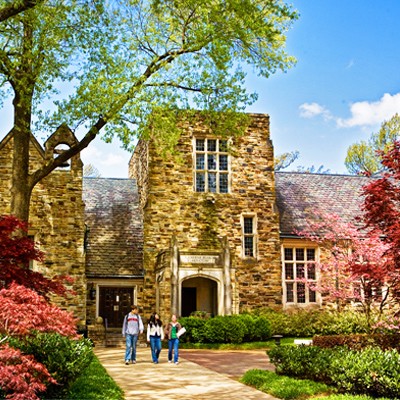(Tyler Springs is a 2013 graduate of Rhodes College with a degree in English. He wrote this post on the Tennessee Bicycle Summit at Rhodes last week.)
Fifty percent of all bicycle trips made in the United States are under three miles in length. As someone who often called on an old Diamondback Recoil to get me the two blocks between my front door and an 8 a.m. geology class at Rhodes College, I can count myself as an active member of the “under-three” club. More to the point, the local membership in that club has the chance to get considerably bigger, and soon.
With the second annual Tennessee Bike Summit being held this past week at Rhodes, it is clear that bikes matter in the Bluff City, and that is becoming more and more true for the school and its surrounding population in particular. Anthony Siracusa, a 2009 graduate who started Revolutions Community Bike Shop and earned a prestigious Watson Fellowship to study bike cultures around the world, is happy to see the cause advancing around his alma mater’s Midtown campus.
“The McLean Avenue bike lane will take you from this area all the way to Cooper-Young, a primary entertainment district, and [within a year] the North Parkway bike lanes will be able to take you from the college all the way downtown,” he said. “I think [Rhodes] should take very seriously the investment that the city is making, and also make a subsequent investment here on campus, both in terms of [bike] education, and pushing students to get out and use that new infrastructure.”
Though he has commuted to Rhodes by bike for years (first as a student, now as an administrator), Siracusa believes that the framework for a widespread proliferation of pedal-power is just now being realized.
“They’re going to build a connector trail from the main circuit of Rhodes and Overton Park to East Parkway that will carry riders across East Parkway with timed signal into the new protected bike lanes on Broad Ave and to then, the Shelby Farms Greenline,” he said. “That should be boasted about to incoming students as a major asset. You literally walk out your front door, have access to one of the oldest growth forests in an urban area in the country, and then you access the only two way cycle track in the country to a seven-mile Shelby Farms Greenline that leads you to the largest urban park in America. That’s pretty sweet.”
An obstacle to a more bike-friendly mindset, however, might be the notion that people at a residential college contained on barely one hundred acres don’t need anything more than their feet to get around. With 70% of students currently living on the Rhodes campus—where most academic buildings are just a five-minute walk from residence halls—some would probably say that bikes actually aren’t needed in greater numbers. For a kid with daily access to the campus rec center and a weekly meal-plan that can cover all meals, the incentive to buy (and maintain) a bicycle might seem limited. Still, Siracusa says that more bikes could simplify some prominent campus issues.
“You can solve a number of problems [by encouraging biking], one of the big ones being having too many cars here on campus,” Siracusa said, referring to the parking lots that are becoming increasingly crowded as the school grows its student body from 1,800 to more than 2,000. “But you’ve got to have a commitment from the college to getting folks out on bikes and safely using that infrastructure.”
At the moment, Rhodes does operate a bike maintenance and rental shop on campus for Rhodes students and faculty, but it may take some time yet for the college to embrace a role as a biking base for Midtown. But, the wheels are turning.
